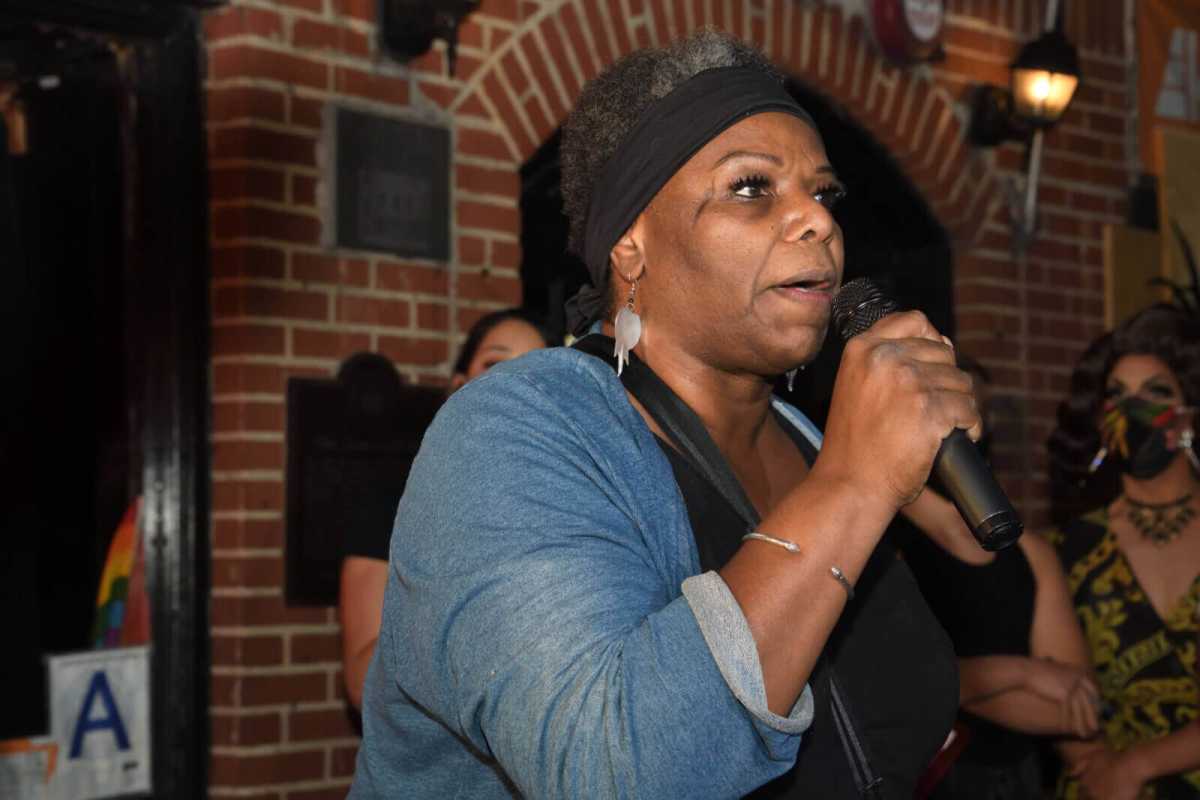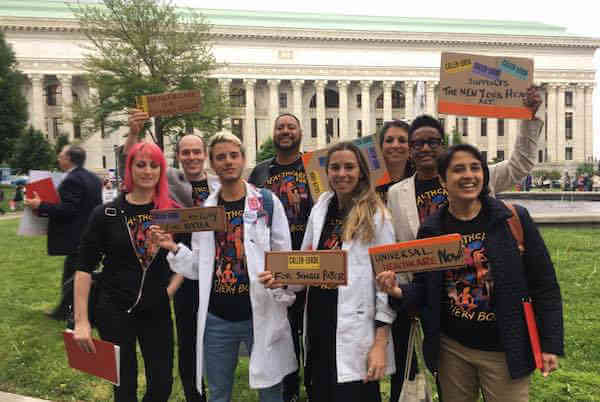A US district court judge ruled on August 17 that a new Trump administration rule rescinding an Obama era rule prohibiting gender identity discrimination in healthcare will not go into effect on August 18, its scheduled date, granting a preliminary injunction against its enforcement. The judge in the case, Frederic Block, sits on the Eastern District of New York federal bench in Brooklyn.
After the Affordable Care Act (ACA) became law in 2010, the Department of Health and Human Services (HHS) worked to provide an official interpretation of the nondiscrimination requirements contained in the statute’s Section 1557. That section incorporates by reference a provision of Title IX of the Education Amendments of 1972, which forbids sex discrimination in educational institutions receiving federal funding. Both HHS and federal courts, in interpreting Title IX, in turn have looked to decisions interpreting the sex discrimination provision in Title VII of the 1964 Civil Rights Act, which addresses employment discrimination.
By the time HHS had finished writing its rule in 2016, both the Equal Employment Opportunity Commission and several federal appeals courts had interpreted Title VII to ban discrimination because of an individual’s gender identity. HHS followed these precedents and included a prohibition on gender identity discrimination in its ACA rule.
Relying on June Title VII decision, US district court in Brooklyn was one step ahead of the bigots in power
Several states and a religious health care institution, Franciscan Alliance, then challenged the rule before a federal district judge in Fort Worth, Texas, who was notoriously receptive to issuing nationwide injunctions against Obama administration policies. True to form, that court ruled in late 2016 that the inclusion of gender identity was contrary to the “original meaning” of the term “because of sex” when Congress adopted Title IX in 1972.
When the Trump administration came to power, it began work on the rule challenged in the case decided on August 17 in response to the Forth Worth federal court’s decision. Had Hillary Clinton been elected instead, her administration would likely have appealed the Fort Worth ruling to the Fifth Circuit Court of Appeals.
Judge Block in his ruling this week emphasized this history in explaining his finding that the Human Rights Campaign (HRC) and its volunteer attorneys from Baker & Hostetler LLP, were likely to succeed on the merits of their claim that the Trump rule was inconsistent with the ACA and that HHS was “arbitrary and capricious” in finalizing it just days before the historic June 15 Supreme Court ruling in Bostock v. Clayton County that found that discrimination against a person because of their transgender status was “necessarily discrimination because of sex.”

The Trump administration was so confident that the court would rule the other way that it decided to finalize its new rule ahead of the high court decision, though in its preamble HHS did acknowledge that a decision by the Supreme Court in the Title VII case could affect the interpretation of Section 1557. Without publicly reacting to the Bostock decision or revising the new rule to acknowledge that the Supreme Court had rejected the Trump administration’s interpretation of “discrimination because of sex,” HHS went ahead and published its new rule five days later.
Over the following weeks, challenges to the new rule were filed in four different federal courts. HRC filed suit on behalf of two transgender women in New York, Tanya Asapansa-Johnson Walker and Cecilia Gentili, who had encountered discrimination from healthcare institutions covered by the ACA. Block found that their experiences gave them formal standing to challenge the new rule, reaching his decision the day before the Trump administration was set to implement it.
Block found that the well established practice of following Title VII interpretations in sex discrimination cases was likely to be followed under the ACA, just as it was under Title IX, and so the plaintiffs were likely to succeed in their claim that the new rule was inconsistent with the ACA. He noted that just two weeks earlier, the 11th Circuit Court of Appeals had followed the Bostock decision in finding that a Florida school district violated Title IX by denying appropriate restroom access to a transgender student.
Block also found the failure of the new rule, published after the Bostock decision, to mention that ruling or offer any reasoned explanation why it should not be followed, was likely to be found “arbitrary and capricious,” so its adoption probably violated federal administrative procedures defined in law.
Even though the Obama nondiscrimination rule has not been enforced by HHS since the December 2016 injunction by the federal court in Fort Worth, numerous lawsuits under Section 1557 have successfully challenged exclusion of transgender healthcare protections under the ACA.
Block’s injunction against enforcing the new Trump rule gives the green light to HHS to resume enforcing Section 1557 in gender identity discrimination cases consistent with the Bostock ruling. While there are probably plenty of career officials in the HHS Office of Civil Rights who would like to do so, any significant effort in that direction seems unlikely so long as Trump holds on to the reins of power.
For now, the main impact of Judge Block’s order will be to clear a potential obstacle for transgender litigants under Section 1557, as the opinion persuasively explains how the reasoning in the Bostock ruling compels protecting transgender healthcare patients under the ACA.
The burden on HHS — should it want to continue defending the new Trump rule — is to provide a reasoned explanation for why the Bostock interpretation of “discrimination because of sex” should not be followed under Section 1557.
Of course, the HHS could also simply rewrite the rule with a simple statement that Section 1557’s ban on discrimination because of sex includes claims of sexual orientation or gender identity discrimination consistent with the Supreme Court’s Bostock decision.
To sign up for the Gay City News email newsletter, visit gaycitynews.com/newsletter.



































